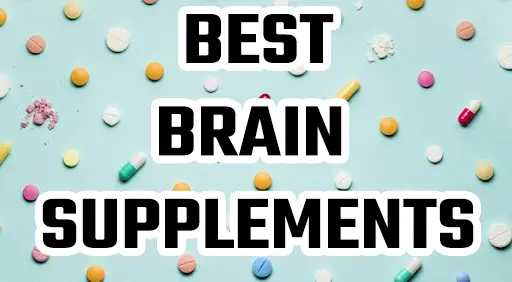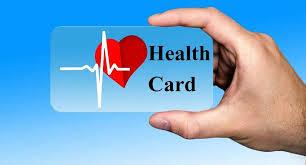Optimal brain health is crucial for general well-being in our fast-paced society. Factors such as stress, lack of sleep, and unhealthy eating may affect cognitive performance as we get older. Thankfully, some nutrients might help maintain and improve brain function. Here we will go over the advantages of a few important supplements.
1. Omega-3 Fatty Acids:
Omega-3 fatty acids, found abundantly in fish oil, walnuts, and flaxseeds, are vital for optimal brain health. These essential fatty acids contribute to the structural integrity of cell membranes in the brain, fostering communication between cells. Additionally, omega-3s play a pivotal role in promoting neuroplasticity, the brain’s ability to adapt and reorganize, which is essential for learning and memory. Their anti-inflammatory properties also contribute to a healthier brain environment, potentially reducing the risk of cognitive decline as we age.
2. Phosphatidylserine:
Phosphatidylserine, a phospholipid found in high concentrations in the brain, is crucial for cognitive function. It aids in neurotransmitter production, facilitating efficient communication between nerve cells. Studies suggest that supplementing with phosphatidylserine can enhance memory and cognitive performance, making it particularly beneficial for individuals facing age-related cognitive decline. Moreover, it plays a role in stress management, influencing cortisol levels and potentially mitigating the negative impact of chronic stress on the brain.
3. Bacopa Monnieri:
Bacopa Monnieri, an adaptogenic herb with a rich history in Ayurvedic medicine, offers cognitive benefits. It contains compounds that support the growth of nerve endings, promoting improved synaptic communication. Known for its anxiolytic properties, Bacopa Monnieri helps reduce stress and anxiety, positively impacting overall cognitive function. Additionally, studies suggest that regular Bacopa supplementation may enhance memory, making it a valuable ally for those seeking cognitive support.
4. Rhodiola Rosea:
As an adaptogen, Rhodiola Rosea aids the body in adapting to stressors, both physical and mental. This herb has demonstrated the ability to reduce fatigue and improve overall cognitive performance. Rhodiola achieves this by modulating the levels of neurotransmitters like serotonin and norepinephrine, contributing to enhanced concentration and reduced mental fatigue. The adaptogenic properties of Rhodiola make it a valuable addition to support cognitive resilience in the face of stress.
5. Nootropics:
Modalert 200 Online and Modvigil 200mg, are nootropics containing modafinil and stand out for their wakefulness-promoting effects. These medications are prescribed to address conditions like narcolepsy and sleep apnea. Modafinil’s mechanism of action involves promoting wakefulness without the jittery side effects associated with traditional stimulants. For individuals seeking enhanced cognitive function, alertness, and concentration, Modalert 200 and Modvigil 200 may offer valuable support. It’s crucial to use these medications under the guidance of a healthcare professional to ensure proper dosage and safety.
6. Ginkgo Biloba:
Ginkgo Biloba, derived from the leaves of the ancient Ginkgo tree, is renowned for its antioxidant properties. By enhancing blood flow to the brain, Ginkgo Biloba promotes improved cognitive function and memory. This increased blood flow delivers essential nutrients and oxygen to brain cells, supporting their optimal function. Additionally, Ginkgo Biloba’s antioxidant effects help protect the brain from oxidative stress, which is implicated in age-related cognitive decline.
7. Acetyl-L-Carnitine:
Acetyl-L-Carnitine, an amino acid derivative, plays a crucial role in mitochondrial function and energy production within brain cells. By supporting the mitochondria, the energy powerhouses of cells, it enhances overall cognitive function. Studies suggest that Acetyl-L-Carnitine supplementation may improve focus, mood, and memory. Its ability to cross the blood-brain barrier makes it particularly effective in supporting brain health, contributing to mental clarity and optimal cognitive performance.
8. Creatine:
Often associated with athletic performance, creatine is not limited to the realm of sports. In the brain, creatine replenishes adenosine triphosphate (ATP), the primary energy currency of cells. This increased energy availability benefits cognitive tasks requiring short-term memory and quick thinking. Studies indicate that creatine supplementation may enhance cognitive performance, making it a versatile supplement for individuals seeking improved mental agility and focus.
9. Vitamin B Complex:
The B vitamins, including B6, B9 (folate), and B12, are essential for brain health. They play a crucial role in neurotransmitter synthesis, ensuring efficient communication between nerve cells. Additionally, these vitamins contribute to DNA repair and the maintenance of myelin, the protective covering around nerve fibers. A deficiency in B vitamins can lead to cognitive impairment and mood disorders. Ensuring an adequate intake of these vitamins through diet or supplementation supports overall brain health and cognitive function.
10. Curcumin:
Derived from turmeric, curcumin is a polyphenolic compound with potent anti-inflammatory and antioxidant properties. Its ability to cross the blood-brain barrier makes it particularly effective in supporting brain health. Curcumin’s anti-inflammatory effects may contribute to improved memory and mood by reducing neuroinflammation. Studies also suggest that curcumin may enhance overall cognitive function, making it a promising supplement for those seeking to support brain health naturally.
Conclusion:
Incorporating these supplements into your lifestyle can contribute to optimal brain health. From supporting the structural integrity of cell membranes to enhancing neurotransmitter production and reducing inflammation, these supplements offer a holistic approach to cognitive well-being. However, it’s essential to approach supplementation with caution and consult with a healthcare professional, as individual needs vary. Prioritizing a healthy lifestyle, including a balanced diet, regular exercise, and sufficient sleep, forms the foundation for sustained cognitive health.






